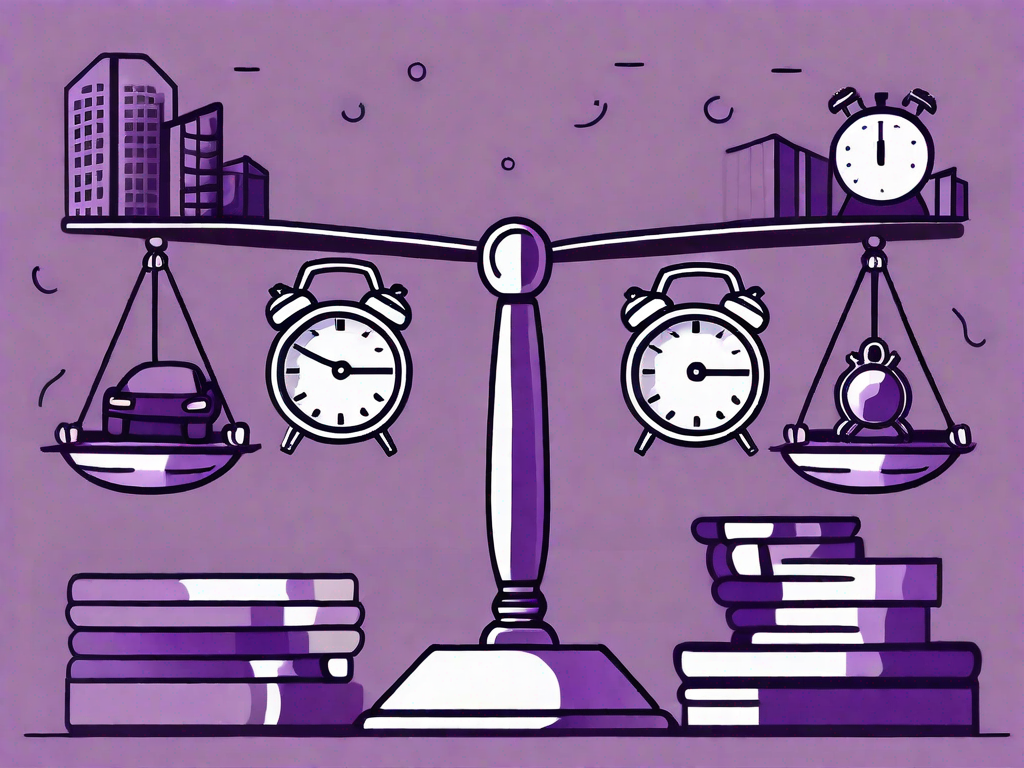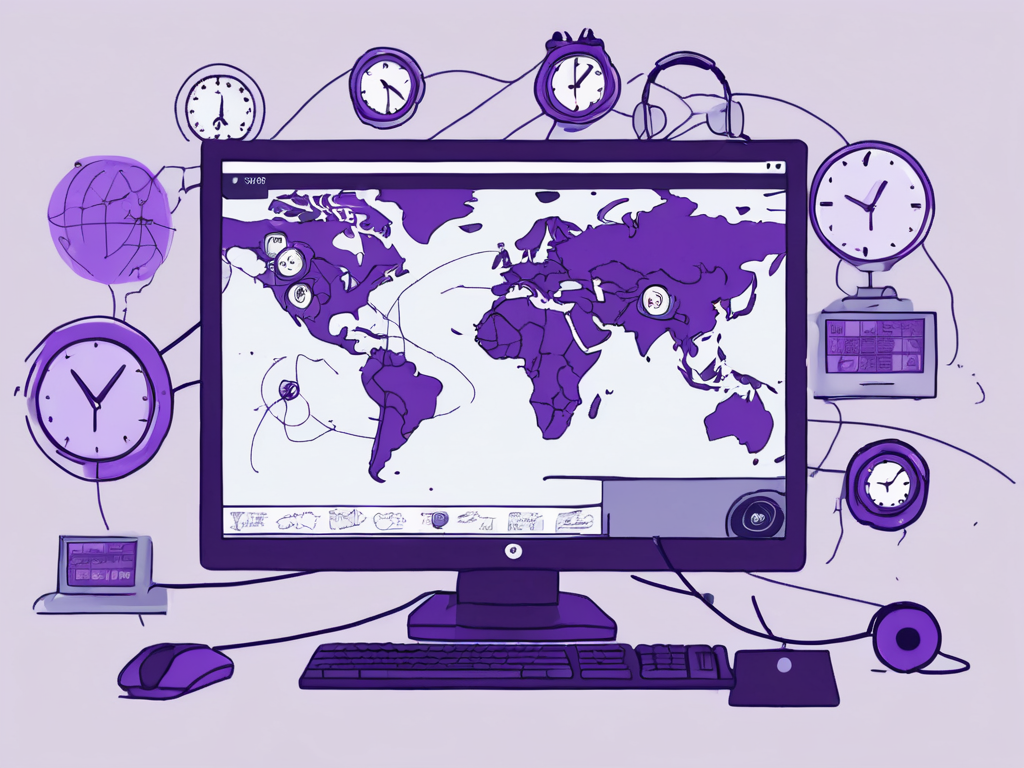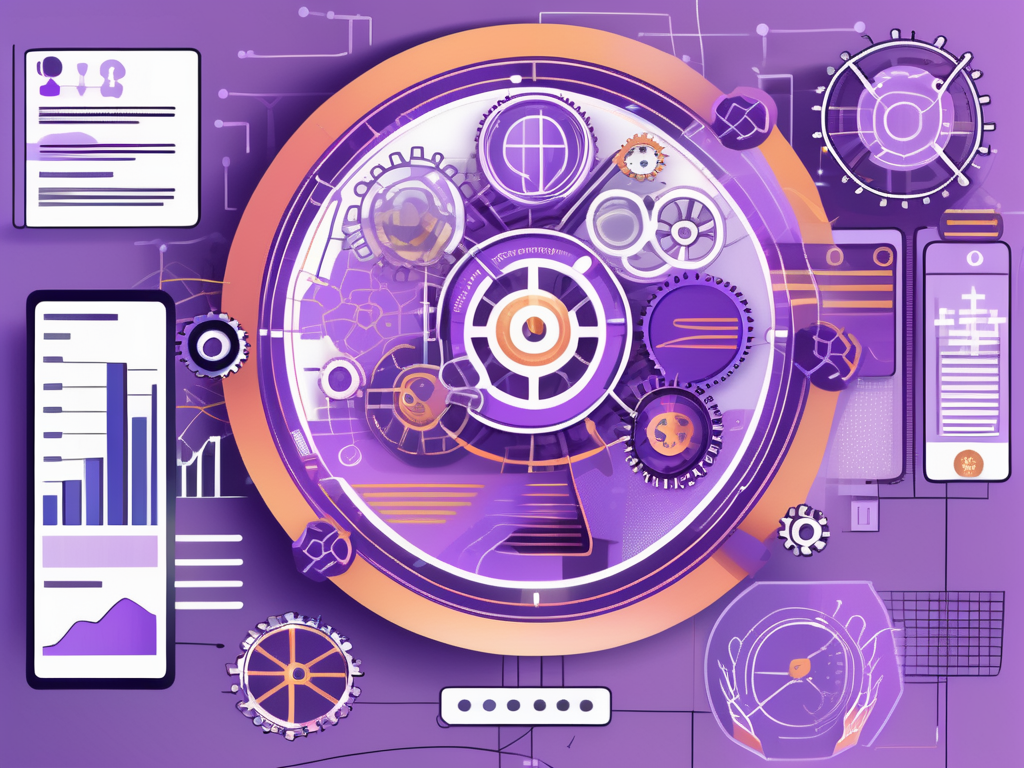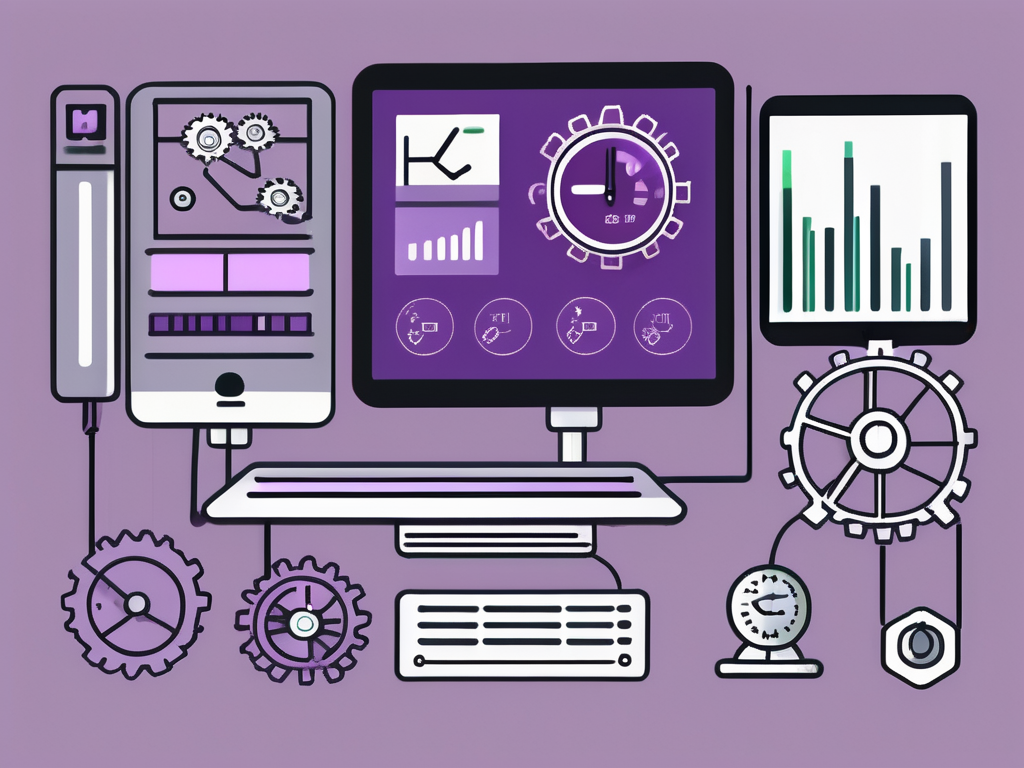10 Business Tips on time management and resource allocation
08 Oct 2015 By: Michael Kansky
Updated
Time management and resource allocation are crucial for the success of any business. By optimizing these aspects, organizations can increase productivity and efficiency, ultimately leading to growth and profitability. In this article, we will explore ten valuable tips to help businesses improve their time management and resource allocation practices.

Why optimizing time and resource allocation is important
Efficient time management and resource allocation are not just important, but crucial for the success of any business. In today’s fast-paced and competitive world, organizations need to make the most of their available resources to stay ahead of the game. By effectively allocating time and resources, businesses can ensure that they are operating at maximum efficiency and productivity.
One of the key benefits of optimizing time and resource allocation is the ability to complete tasks on time. When time is managed effectively, deadlines can be met without any last-minute rush or stress. This not only helps in maintaining a smooth workflow but also prevents delays and potential setbacks. By avoiding delays, businesses can ensure that they are delivering products or services to their customers in a timely manner, thus enhancing customer satisfaction.
Another advantage of optimizing time and resource allocation is improved productivity. When resources are allocated efficiently, employees can focus on their core tasks without wasting time on unnecessary activities. This allows them to work more effectively and produce higher quality work. Moreover, by eliminating time wastage and unnecessary tasks, businesses can streamline their operations and achieve higher levels of productivity.
Efficient time management and resource allocation also contribute to cost savings. When resources are utilized optimally, businesses can minimize wastage and reduce unnecessary expenses. For example, by accurately estimating the time required for a project and allocating resources accordingly, businesses can avoid overstaffing and save on labor costs. Similarly, by identifying and eliminating non-value-added activities, organizations can reduce operational costs and improve their bottom line.
Furthermore, optimizing time and resource allocation allows businesses to be more agile and responsive to changing market conditions. By effectively managing time, organizations can quickly adapt to market demands and seize new opportunities. This flexibility enables businesses to stay competitive and stay ahead of their competitors.
In conclusion, optimizing time and resource allocation is of utmost importance for businesses. It not only ensures that tasks are completed on time, but also leads to improved productivity, cost savings, and increased agility. By making the most of their available resources, organizations can enhance their overall performance and achieve long-term success.
Identifying Time-Wasting Tasks and How to Avoid Them
It is crucial for businesses to identify tasks that consume excessive time without adding significant value. By recognizing these time-wasting activities, organizations can take necessary steps to avoid or streamline them. This could involve automating certain processes, delegating tasks to the appropriate team members, outsourcing tasks, or eliminating nonessential activities altogether.
One common time-wasting task that businesses often encounter is excessive email communication. With the advent of technology, email has become an integral part of our daily work routine. However, it is not uncommon for employees to spend a significant amount of time sorting through and responding to emails that are not directly related to their core responsibilities. To address this issue, businesses can implement email management strategies such as setting specific times to check and respond to emails, utilizing email filters and folders to prioritize important messages, and encouraging face-to-face or phone conversations for quick and efficient communication.
Another time-wasting task that can hinder productivity is attending unnecessary meetings. While meetings are essential for collaboration and decision-making, they can often become unproductive and consume valuable time. To avoid this, businesses can implement a meeting culture that emphasizes the importance of setting clear agendas, inviting only necessary participants, and keeping meetings concise and focused. Additionally, utilizing virtual meeting platforms can reduce the need for physical presence, saving time and resources for all parties involved.
Furthermore, inefficient processes and workflows can also contribute to time-wasting tasks. Businesses should regularly evaluate their internal procedures to identify bottlenecks and areas for improvement. This can involve conducting process audits, seeking feedback from employees, and leveraging technology to automate repetitive or manual tasks. By streamlining workflows and eliminating unnecessary steps, businesses can significantly reduce time wastage and improve overall efficiency.
Employee multitasking is another common time-wasting activity that can hinder productivity. While multitasking may seem like a way to get more done in less time, research has shown that it can actually lead to decreased efficiency and increased errors. To combat this, businesses can encourage employees to prioritize tasks, focus on one task at a time, and allocate dedicated blocks of time for specific activities. Additionally, providing training and resources on effective time management techniques can help employees optimize their productivity and reduce time wastage.
Lastly, businesses should also be mindful of the impact of workplace distractions on productivity. Whether it’s constant interruptions from colleagues, excessive noise, or cluttered workspaces, these distractions can significantly impede progress and lead to time wastage. To address this, businesses can create designated quiet zones, implement flexible work arrangements, and provide noise-cancelling headphones or other tools to minimize distractions. Additionally, fostering a culture of respect and open communication can encourage employees to be mindful of their colleagues’ time and minimize unnecessary disruptions.
How to Make the Most of Your Time
In today’s fast-paced world, time is a precious commodity. We all have the same 24 hours in a day, but some people seem to accomplish so much more than others. How do they do it? The secret lies in effective time management.
One of the first steps to making the most of your time is to create a comprehensive to-do list. This simple yet powerful tool allows you to see all your tasks at a glance and helps you prioritize them effectively. But don’t just stop at listing your tasks; take it a step further and categorize them based on their urgency and importance.
Urgency refers to how soon a task needs to be completed, while importance refers to how much impact it will have on your business goals. By categorizing your tasks in this way, you can easily identify which ones require immediate attention and which ones can be tackled later. This not only helps you stay organized but also ensures that you are focusing on the tasks that will have the most significant impact on your business.
Once you have categorized your tasks, it’s time to allocate dedicated time slots for their completion. This is where many people struggle. It’s easy to get overwhelmed by the sheer number of tasks on your to-do list and end up jumping from one task to another without making much progress. By allocating specific time slots for each task, you create a sense of structure and discipline in your day.
When allocating time slots, be realistic about how long each task will take. It’s important to give yourself enough time to complete each task without feeling rushed or stressed. Remember, quality is just as important as quantity. It’s better to complete a few high-priority tasks with excellence than to rush through a long list of tasks and end up with subpar results.
Another important aspect of making the most of your time is to minimize distractions. In today’s digital age, distractions are everywhere. From social media notifications to endless emails, it’s easy to get sidetracked and lose focus. To combat this, consider implementing time-blocking techniques, where you dedicate specific blocks of time to focus solely on your tasks without any interruptions.
Lastly, don’t forget to take breaks. It may seem counterintuitive, but taking regular breaks actually improves productivity. Studies have shown that short breaks throughout the day can help refresh your mind, increase focus, and prevent burnout. So, make sure to schedule short breaks in between your tasks to recharge and rejuvenate.
In conclusion, making the most of your time requires effective time management techniques. By creating a comprehensive to-do list, categorizing tasks based on urgency and importance, allocating dedicated time slots, minimizing distractions, and taking regular breaks, you can maximize your productivity and achieve more in a limited time frame. So, start implementing these strategies today and watch as your time becomes your most valuable asset.
Prioritizing Tasks and Allocating Resources
A key aspect of effective time management and resource allocation is prioritizing tasks. Not all tasks are equal in terms of their impact on business success. It is essential to identify and prioritize tasks that directly contribute to your business goals. Allocate resources, including personnel and finances, in a manner that supports the completion of these high-priority tasks first.
Learning to Say ‘No’ and Stay on Track
One common challenge in time management and resource allocation is avoiding overcommitment. By learning to say ‘no’ to tasks or projects that do not align with your priorities or stretch your resources thin, you can stay focused on what truly matters. This requires clear communication and setting realistic expectations with stakeholders.
Utilizing Technology to Streamline Time Management
Technological advancements offer numerous tools and solutions that can streamline time management and resource allocation. Explore software applications and time-tracking tools that can automate repetitive tasks, provide reminders, and simplify team collaboration. Leverage technology to optimize your business processes and save time for more strategic activities.
Learning from Mistakes to Improve Resource Allocation
Resource allocation is an ongoing learning process. Analyze past projects and evaluate how effectively resources were utilized. Identify any gaps or areas for improvement and incorporate these lessons into future resource allocation strategies. Continuously reassess and refine your approach to achieve optimal resource allocation for your business.
Related read
Creating a System to Track and Analyze Progress
A systematic approach to tracking and analyzing progress is essential for effective time management and resource allocation. Implement a system that allows you to monitor the progress of tasks, measure resource utilization, and identify potential bottlenecks. Regularly review and analyze this data to make informed decisions and adjustments as needed.
The Benefits of Time Management and Resource Allocation
Implementing effective time management and resource allocation practices brings several benefits to a business. It helps improve overall productivity, enhances employee satisfaction by reducing unnecessary stress and workload, enables better decision-making based on data-driven insights, and fosters a culture of efficiency and accountability within the organization.
By implementing these ten business tips on time management and resource allocation, businesses can optimize their operations and create a foundation for long-term success. Remember, it is an ongoing process that requires continuous evaluation and adjustment. Embrace these practices to unlock your business’s full potential.
Ready to take your business’s time management and resource allocation to the next level? With HelpSquad BPO, you can streamline your operations and free up valuable time by outsourcing your customer support, back-office tasks, and research. Our skilled, bilingual agents are available 24/7, starting at just $8.50 per hour, to provide the support you need to focus on what matters most. Start your trial today and experience the difference that professional virtual assistants can make in your business’s efficiency and productivity.
Related Blogs
 25 Apr
25 Apr Customer Service
The Role of BPO in Enhancing Patient Engagement Software
In the evolving healthcare technology field, patient engagement software is essential. It improves interactions between patients and providers. Business Process Outsourcing (BPO) also plays an important role. It streamlines tasks like scheduling and billing. This helps healthcare organizations focus more on care and operational efficiency. It’s crucial for providers to understand the connection between BPO … Continued
 24 Apr
24 Apr Customer Service
Leveraging Business Process Outsourcing for Electronic Health Records Management
In the fast-paced healthcare sector, combining Business Process Outsourcing (BPO) and Electronic Health Records (EHR) is crucial. This strategy boosts operational efficiency and improves patient care. Healthcare organizations are using this tech synergy to streamline operations. The mix of EHR systems and BPO services optimizes data handling and transforms service delivery. This article examines the … Continued
 23 Apr
23 Apr Business Process Outsourcing
7 EHR efficiency strategies to reduce documentation time
To boost EHR efficiency and cut documentation time, adopt these seven strategies: streamline workflows, use templates, train staff effectively, integrate voice recognition, apply AI tools, standardize data entry, and regularly review processes. These methods enhance productivity, reduce errors, and save valuable time for healthcare providers. Understanding EHR and Its Importance EHRs provide a digital way … Continued